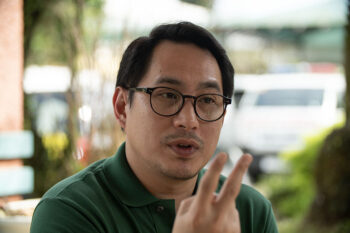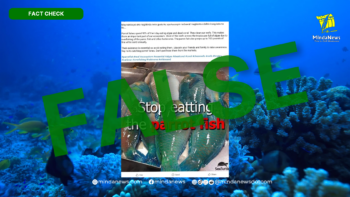(Remarks of Merlie “Milet” B. Mendoza, researcher/writer, during the book launch of The Asia Foundation’s “Local Security in the Contested Bangsamoro Zone: Informality, Hybridity and Pragmatic Imperatives” where she wrote a chapter on Sulu. The launch was held on March 29, 2017 at the Balay Kalinaw, University of the Philippines, Diliman, Quezon City. Mendoza says the research on which the chapter was written was undertaken in 2014/2015. “At that time, it appeared as if headway had been made by the AFP in controlling the situation in the province, with particular focus on the municipality of Patikul which can be considered the heartland of the Abu Sayyaf Group in the province,” she said).
Greetings of Peace to all friends, colleagues and fellow peace builders.
I would like to express my gratitude to The Asia Foundation (TAF) for the trust and support it has extended to me in carrying out my passion to share my modest insights drawn from a difficult yet challenging peace building engagement in the Sulu Archipelago beginning from the last decade.
TAF Conflict Management Program officers Willy Torres and Nadine Ragonjan, and certainly, Dr. Steve Rood, have been most supportive of these independent undertakings in documenting my ground-based narratives in one of the most difficult, high risk conflict zones And these were all intended mainly for policy advocacy, and hopefully, policy reforms.
I should say that it was not until I had set foot in Sulu in 2004 until 2008 that I had the most informative and fulfilling social development experience that had paved the way for a radical paradigm shift in understanding what peace-building and conflict transformation are about in the context of historical violence, political governance and marginalization.
My first engagement with TAF started in 2009 for a roundtable discussion on the kidnapping problem in the Basilan-Sulu area and its impact on development NGOs and donors operating in the area. This was followed in 2013 with a research on security strategies that worked in the conflict areas. Then TAF responded to my desire to document the firsthand narratives of my Tausug friends who were part of the Sultanate of Sulu who defended themselves in Sabah, and for some, later put to jail in Tawi Tawi. Simultaneous with this was the commencement of the “What Works?” research, the results of which are partly presented here.
There is a back story to the chapter on Sulu which I would like to discuss here, because you will not find it in the book.
Starting in 2005, efforts were exerted to try to shift the focus of the AFP (Armed Forces of the Philippines) from a purely combat role to one of working more closely with communities and stakeholders. A key effort in this regard was the Asian Institute of Management’s Bridging Leadership Program which brought together various stakeholders – to include the security agencies (AFP/PNP), LGUs, civil society and even non-state armed groups, in particular the MNLF – to exchange views on social issues. This would highlight the divides among these various sectors and introduce ways to “bridge” these divides. All this came into the coordinated intervention of Pagtabangan BaSulTa, with a number of national and local NGOs working together with local government people and civil society sectors in “experimenting” on operationalizing an integrated human security framework.
This exposure opened the minds of the military hierarchy in Sulu and reoriented the campaign to put more emphasis on such efforts as Civil-Military Operations (CMO). This led to the effort to try and understand better the milieu within which military personnel had to operate, with orientation programs being set up for officers and even enlisted men to better appreciate Islam and Sulu culture. The Philippine Marines developed their Community Relations Training (CRT) program which brought in local professionals to brief the soldiers on Islam, Sulu history and culture and even provided for joint projects being undertaken with communities.
In the prior decade, I had carefully managed a low-key facilitation role in helping bridge opportunities for dialogue between the military and the community especially in cases of human rights violations. Where do people run to when their local leaders are not present, or perceived to be unapproachable and not responsive? During the decade I was there, there prevailed a tremendous trust and credibility gap between the military and police forces, on the one hand, and the general populace, on the other hand. During the Arroyo Administration, there was constant bombardment and massive displacements. Military response to the security situation in Sulu during the early part of the decade 2000-2010 was characterized by an effort to apply a show of overwhelming force in pursuit of High-Value Targets (HVTs) including ASG Basilan Chairman Khadaffy Janjalani and Indonesian Jemaah Islamiyah (JI) personalities Dulmatin and Umar Patek. Despite the Presidential and AFP institutional directives, it was notable that you had some military officers back then in Sulu seriously wanting to venture into more people-sensitive security approaches, and engaging in quiet conversations on this.
And gradually things seemed to have quieted down over the following years as there was change in military assignment and even with some political players changing over time. The situation appeared to have come under control. There continued to be encounters with the ASG but they seemed to be manageable. Formulating innovative approaches, which enlist the help of the local population in addressing their problems, has become a challenge that some military commanders in Sulu have taken on seriously. What has been done to overcome this is to ask for assistance from CSO support groups in the formulation and application of more appropriate and sustainable development engagement processes. The AFP’s Internal Peace and Security Plan or IPSP – Bayanihan under the Aquino Administration clearly defined its rules of engagement in an attempt to facilitate development programs – one that respects historical experience with a great degree of sensitivity, and respect for human rights. It is important to be aware of the fact that the promotion of the fundamental freedoms is interlinked with peace and development.
But where are we today, two to three years later? Unceasing kidnappings. Cross-border abductions. Horrific beheadings captured on video for the whole world to see. Seven thousand to 8,000 soldiers in Sulu hunting an ASG force which the military had said consisted of only 200-300 men on the island of Jolo. Another 2,000-3,000 soldiers going after another 200 men in Basilan. The influence of ISIS finally being acknowledged by the Government and the military after two years of dismissing the reports of ISIS infiltration as being purely propaganda. All-out unceasing intensive military campaigns which are leading to the displacement of the civilian population, people being unable to pursue their livelihoods because of the constant fighting.
So what is the back story to the report on Sulu in the book we are launching today? It is this:
When you think you have found the key to peace, you are shocked to realize it was just an illusion.
Eleven years ago, Tabang Mindanaw undertook a study aimed at “Developing a Culture of Peace for Sulu”. The report written by Victor M. Taylor and Abraham Idjirani cited four principles arising from the study. The fourth and last principle was this: “It must be realized that whatever gains are made in this effort to bring peace back to Sulu must be jealously guarded, as these could disappear if not nurtured and protected”.
Sadly, we are back to square one, groping for an answer, groping for a solution. It seems like a never-ending rebuilding. The insights shared in the chapter on Sulu do not convey any magic formula but rather a hope, amidst constant frustrations, that something is still possible. It is always a possibility. We just need to persevere with patience and faith in God and in one another.







